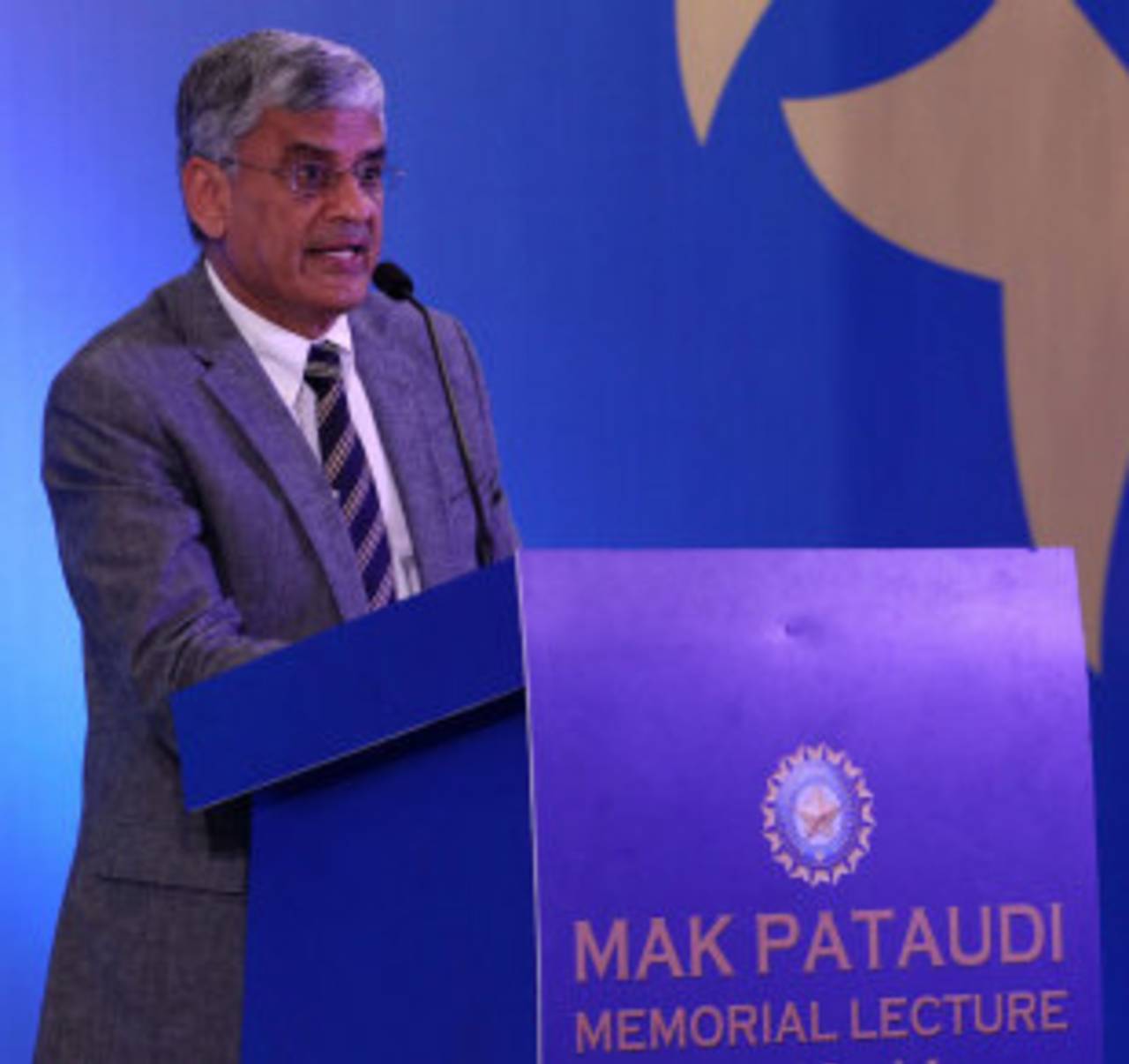BCCI's demand for more revenue justified - Patel
Sanjay Patel, the BCCI secretary, has said that the BCCI's demands for a larger share of the ICC's revenue were justified given India's commercial pull in world cricket
ESPNcricinfo staff
30-Jan-2014

Sanjay Patel said that most Full Members had accepted the suggested revamp proposal • BCCI
Sanjay Patel, the BCCI secretary, has said that the BCCI's demands for a larger share of the ICC's revenue are justified given India's commercial pull in world cricket.
The BCCI, along with Cricket Australia and the ECB, had drafted a "position paper" that stressed on a new revenue distribution model favourable to the Big Three boards. The "position paper" also suggested a new model of governance and changes to the existing Future Tours Programme (FTP) structure.
"(One) who is contributing more should get more than what they get," Patel told reporters on the sidelines of the Ranji Trophy final in Hyderabad. "Earlier we used to get only 4%, though we were responsible for generating more than 60-70% of the total revenue. So in that aspect, it is absolutely fair (to demand more) and by taking the governance model and joined with that, we are expecting the overall gross revenue will more than double within this cycle (2015-2023). The cricket part can be taken care of by utilising the well-generated revenue with good governance."
According to the proposed system, prepared by the three boards under ICC president Alan Isaac's instructions, the BCCI is expected to get nearly a third of the ICC's revenues. The Full Members were presented with the position paper at an ICC Board meeting on January 9 and the Big Three had hoped the proposal would be cleared during the meeting on January 28 and 29.
The members, however, failed to arrive at a conclusion on January 28, although the ICC announced that the key principles of the draft had "unanimous support" of the Full Members. In spite of the criticism generated after the original draft was leaked, Patel termed the paper and its recommendations as "positive" and said it had nothing to do with power games.
"We are quite okay with the position paper. There were a lot of misconceptions about the paper and it was a very good position paper whereby we were considering the Indian position in a real perspective rather than what has come out," Patel said. "I would like to say one thing - it has been mentioned that it is a power game that we are playing, but it was absolutely nothing regarding power. The role of leadership required at the ICC is to be provided by three big contributors, India, England and Australia. Since ours is a major contribution, in terms of cricket and financial things, it has been agreed by almost all of us [Full Members] regarding the financial concept of what we are claiming."
The proposed governance model resulted in opposition from various quarters, including many former ICC executives. It also meant that the rest of the Full Members entered the meeting on January 28 without clarity on several issues, including the two-tier Test system, the conversion of the FTP into bilateral arrangements and revenue distribution. Cricket South Africa, that was not a part of the proposed Test fund in the original draft, demanded the withdrawal of the suggested restructure. Patel, however, denied that any of the members registered their protest over the proposal.
"It was not a protest. Do not call it a protest. It is a deliberation they required, so complete freedom was provided to all members to discuss and learn," Patel said, adding that all topics were discussed in detail in Dubai. "There were two different meetings ranging between five-six hours and later at least some members preferred to go back to their Board and inform them about the reality. But, principally the entire issue of financial models, leadership and the governance has been accepted by all of them."